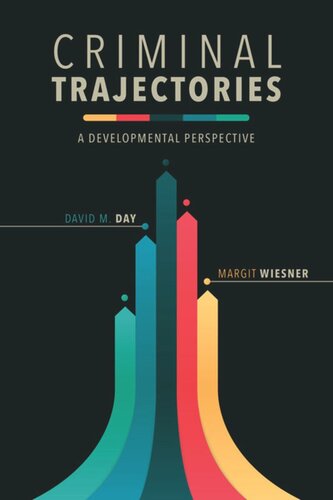

Most ebook files are in PDF format, so you can easily read them using various software such as Foxit Reader or directly on the Google Chrome browser.
Some ebook files are released by publishers in other formats such as .awz, .mobi, .epub, .fb2, etc. You may need to install specific software to read these formats on mobile/PC, such as Calibre.
Please read the tutorial at this link: https://ebookbell.com/faq
We offer FREE conversion to the popular formats you request; however, this may take some time. Therefore, right after payment, please email us, and we will try to provide the service as quickly as possible.
For some exceptional file formats or broken links (if any), please refrain from opening any disputes. Instead, email us first, and we will try to assist within a maximum of 6 hours.
EbookBell Team

0.0
0 reviewsAn exploration of criminal trajectories, placing them in a developmental context
Over the past several years, notions of developmental trajectories—particularly criminal trajectories—have taken hold as important areas of investigation for researchers interested in the longitudinal study of crime. This accessible volume presents the first full-length overview of criminal trajectories as a concept and methodology and makes the case for a developmental approach to the topic.
The volume shows how a developmental perspective is important from a practical standpoint, helping to inform the design of prevention and early intervention programs to forestall the onset of antisocial and criminal activity, particularly when it begins in childhood. Crime in this view does not suit a one-size-fits-all model. There are different types of criminals who develop as the result of different types of developmental factors and experiences. By considering what risk factors may set the stage for later crimes in certain circumstances, the authors argue that we may be able to intervene at any point along the life course and, if addressed early enough, prevent criminal behavior from taking root.
Criminal Trajectories offers a comprehensive synthesis of the findings from numerous criminal trajectory studies, presented through a multi-disciplinary lens. It addresses the policy and practice implications of these findings for the criminal justice system—including a critique of current sentencing and incarceration practices—and presents twelve recommendations informed by developmental frameworks for future work.